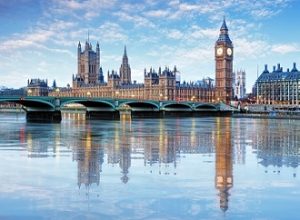The results are in – pension polices stuck in limbo. 9th June 2017
9th June 2017
 The results for the UK general election have been announced. Despite failing to win a majority, the Conservatives have secured support from the Democratic Unionist Party (DUP) and will remain in power.
The results for the UK general election have been announced. Despite failing to win a majority, the Conservatives have secured support from the Democratic Unionist Party (DUP) and will remain in power.
This failure to win an overall majority has left many in the pensions industry stuck in limbo over future policies. In its manifesto, the Conservatives confirmed that the state pension age will rise but it did not say how fast or what age it will increase to. They also proposed to maintain the triple lock until 2020, but then to introduce a new ‘double lock’ where pensions will rise in line with earnings or in line with inflation – whichever is the highest.
However, with little support around the double lock there is speculation that the government would struggle to implement this policy and that it will be dropped.
Jonathan Watts-Lay, Director, WEALTH at work, a leading provider of financial education, guidance and advice in the workplace, comments; “There will no doubt be lengthy negotiations ahead, leaving any proposed changes to pension policies stuck in limbo.
However, individuals should not use this as a reason to bury their head in the sand as whatever changes lie ahead, it’s vital those approaching retirement review how much retirement income they will need, or would like, as early as possible. The value of a well thought out plan should not be underestimated.”
The latest news is brought to you by WEALTH at work, a leading financial wellbeing and retirement specialist. WEALTH at work and my wealth are trading names of Wealth at Work Limited which is a member of the Wealth at Work group of companies.
Links to websites external to those of Wealth at Work Limited (also referred to here as 'we', 'us', 'our' 'ours') will usually contain some content that is not written by us and over which we have no authority and which we do not endorse. Any hyperlinks or references to third party websites are provided for your convenience only. Therefore please be aware that we do not accept responsibility for the content of any third party site(s) except content that is specifically attributed to us or our employees and where we are the authors of such content. Further, we accept no responsibility for any malicious codes (or their consequences) of external sites. Nor do we endorse any organisation or publication to which we link and make no representations about them.

